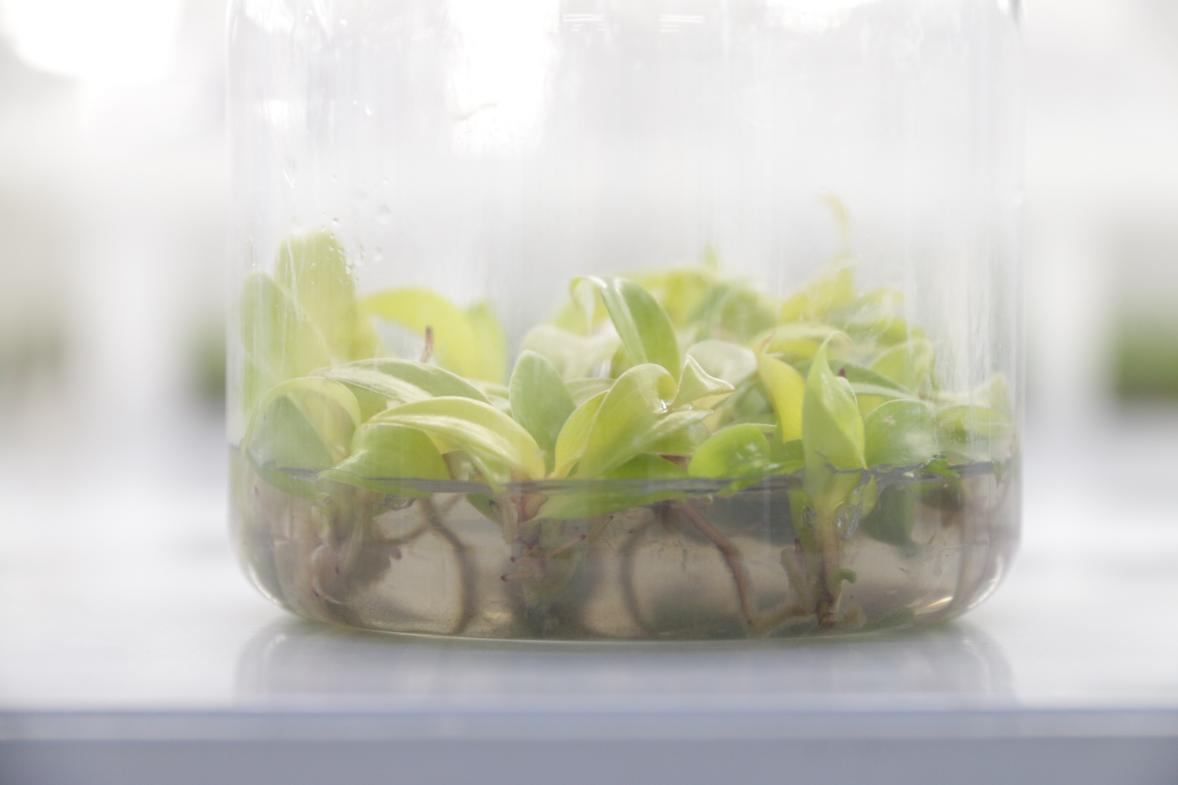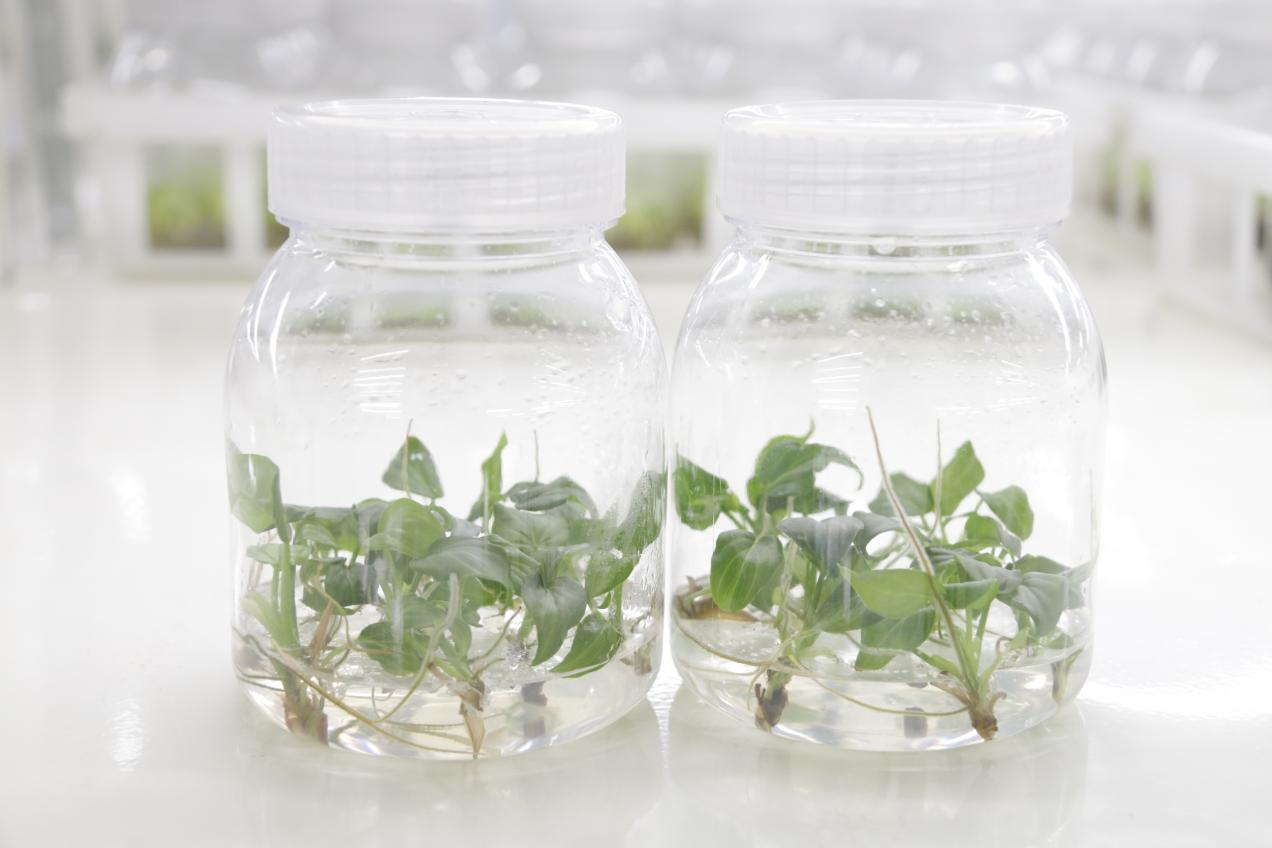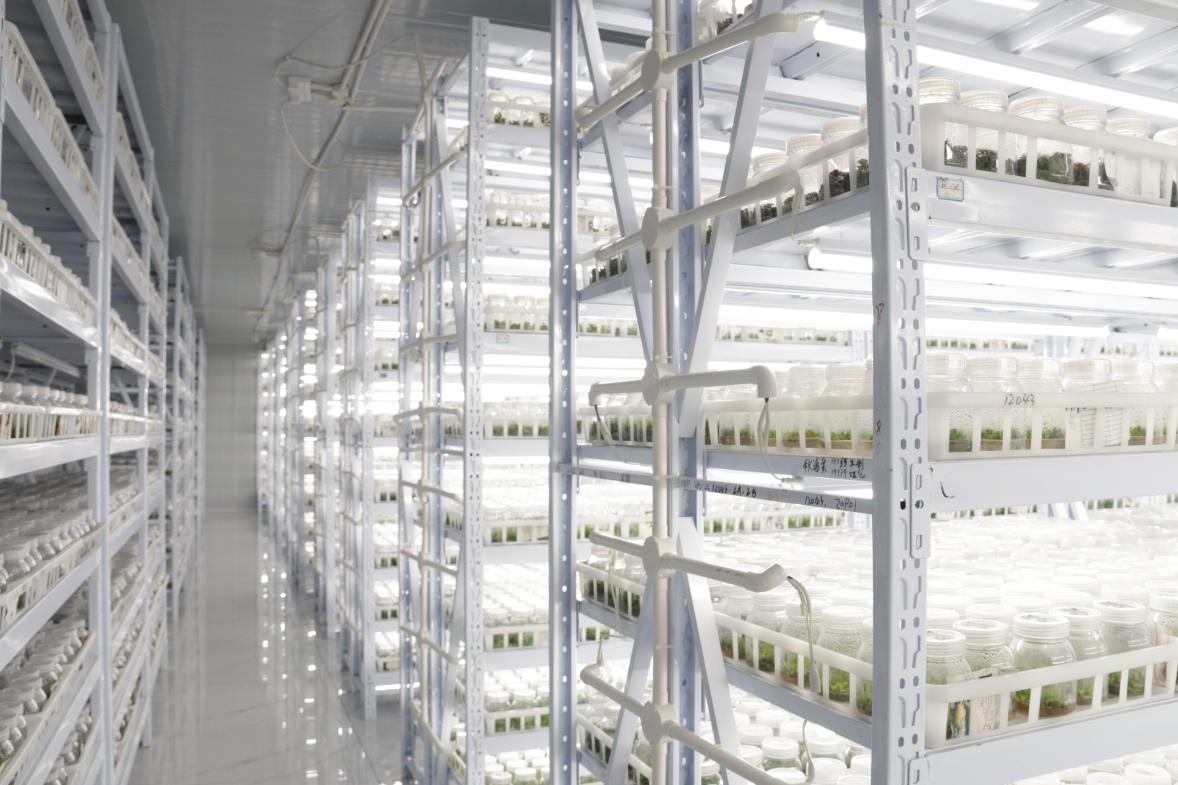Tissue Culture Plants Vs. Potted Plants: What Is The Difference?
Caught between the marvels of tissue culture plants and the charm of potted plants? Both have their unique allure, transforming spaces into lush paradises. On the one hand, tissue culture plants, crafted through micropropagation, promise uniformity and disease-free growth. On the other, potted plants thrive with human touch and natural vibes, each leaf brimming with personality. Whether you lean towards the high-tech or the traditional, understanding these planting techniques will help you create your dream garden.
Ready to explore the epic showdown of tissue culture vs traditional plants? Let’s dive in!
Tissue Culture Plants
First up, let's talk about tissue culture plants—the marvels of modern botanical science. Raised through a process known as micropropagation, these plants begin their life journey as tiny tissue segments in sterile labs.
This method ensures they are uniform and free from diseases, making them perfect candidates for commercial production where consistency is key. Picture a house of tall, straight, and uniform plants, all healthy without a speck of light and willing, capable, and ready to fulfill anyone’s horticultural needs and wants. Young Plants excels in this area, offering a wide variety of tissue culture species to meet diverse gardening and commercial needs.
The Enduring Appeal of Potted Plants
On the other hand, we have potted plants, the heralds of traditional plants or, as some people fondly call them, ‘the plants of ages’, the classics of plant life. These plants are propagated by sowing seeds in pots or using stem cuttings and grow under natural conditions. They grow under bright sun, water, and from a lot of human touch. Every plant is endowed with a personality and brings some sort of splash of nature; to assemble a divergence of the two that can lace almost any livable zone or living area with delight and perfection.
Tissue Culture Vs. Traditional Plants: The Showdown
Now, let's pit tissue culture vs traditional plants against each other. It is like directly comparing a modern wonder's accuracy with a classic trinket's personal beauty. Growing tissue culture plants involves a meticulous, scientific approach, ensuring uniformity and predictability—an asset for large-scale growers. It's about precision and control, qualities that are vital in commercial settings. In contrast, mastering potted plants care is more of an art that demands patience and understanding. Each plant has its characteristics and requires some unique treatments. It is about making friends with nature and having one on one with the plants and feeling the happiness of growing living beings.
Micropropagation Vs. Traditional Planting
In the duel of micropropagation vs traditional planting, your choice will largely depend on your gardening goals. Micropropagation is ideal for those interested in mass production or preserving rare species. It minimizes risks like disease spread and enhances success rates for growing plants that are challenging to cultivate traditionally. Traditional planting, however, is like embarking on an unpredictable adventure. Each new plant holds the promise of surprise, with endless possibilities that spur creativity and excitement. It is a two-part process of enjoying what the plant produces after planting the seed and the pleasure that goes with the process of growing the plant.
Tissue Culture Vs. Potted Plant Growth
When observing tissue culture vs potted plant growth, each has its own pace. Tissue culture plants are like trained athletes, primed for rapid growth thanks to their optimal start. They often achieve maturity faster and with fewer setbacks, making them suitable for those who want quick results. Potted plants, though slower to establish, are resilient champions. They adapt to various environments, showcasing their strength and versatility.
With valuable potted plant care tips, these plants can thrive anywhere, from cozy indoor corners to expansive outdoor gardens, offering endless possibilities for customization and personalization.
Planting Techniques: Tissue Culture Vs. Potting
Exploring planting techniques: tissue culture vs potting, the approaches are distinct. Tissue culture demands a sterile lab setting, complete with specialized equipment and trained professionals, ensuring every detail is managed. It's about precision, control, and the assurance that every plant is perfect. Potting, however, invites a hands-on approach. It's about selecting the right soil, choosing the perfect pot, and finding a spot with ideal sunlight. This method is creative and engages the feelings and emotions of the subject, and therefore every plant is an artwork. It is as simple as being willing to get your hands dirty and feeling the accomplishment that comes with helping to ‘grow’ something.
Bringing Tissue Culture Plants Indoors
Incorporating tissue culture plants indoors can revolutionize your home's aesthetic. These plants, often compact and uniform, are perfect for indoor living.
They integrate effortlessly with contemporary decor, adding a touch of modern elegance to your space. Whether you’re aiming for minimalist chic or a botanical wonderland, tissue culture plants can fit right in.

Mastering Potted Plant Care
To excel in potted plants care, one must become attuned to each plant's needs. Irrigation is a critical consideration—find the mid-ground because too little is as bad as too much. It should be possible to run a finger into the soil without making contact with wetness an inch down to water the plants but not to the flooding point. Sunlight is also vital. Most indoor plants require indirect bright light, but some have adapted to full sun or shade. Knowing these preferences is essential for their health. Fertilization should be moderate, with a balanced formula used every few weeks to promote healthy growth without overwhelming the plant.
Unpacking the Science of Tissue Culture
The science behind tissue culture plants is nothing short of fascinating. It starts with selecting a robust, disease-free mother plant as the genetic model. Tiny sections, or explants, are then cultured in nutrient-rich mediums, receiving all the nutrients and hormones they need to flourish. This stage is crucial as plants develop shoots and roots under controlled conditions. Once matured, they transition to acclimatization chambers to adjust to real-world environments. Finally, they're ready for gardens or indoor spaces, each an exact genetic replica devoid of variation. It is all science and nature combined to make the best out of all that is given to us.
The Advantages of Choosing Tissue Culture Plants
Opting for tissue culture plants offers numerous benefits.
● Uniformity and Consistency: Cultivated in controlled environments, tissue culture plants grow uniformly, ensuring consistent quality and efficiency, ideal for commercial production.
● Disease-Free Growth: Hydroponically-grown because it is ideal for disease and pest free plants that do not require too much chemical intake.
● Conservation of Rare Species: Cooperates with tasks related to the protection of rare and endangered plant species, as well as with the possibility of growing these plants under regulated conditions and contributing to the conservation of plant species.
● Biodiversity Support: Brings more numerous access points to different plant types, thus helping with restoration of ecosystems and improving general resilience.
● Rapid Propagation: Tissue culture makes it easier to reproduce a large quantity of plant in a relatively shorter time than the traditional methods, hence meeting the large demand.
● Genetic Stability: Tissue culture employs accurate methods of cloning, enabling desired characteristics to be achieved with little or no risk of mutations.
The Joy and Flexibility of Potted Plants
In particular, the charms of flower pots are loved by plant enthusiasts not only in the result, but also in the process. It is quite satisfying to watch the plant mature under one’s care, and receive this sort of compliment from readers. Every plant has its story which depends on how it is being taken care of; it brings a closer feeling to touch which is unachievable. Potted plants also offer incredible flexibility. They can be moved to suit decor changes or find the ideal light conditions. You need something elegant to complement your office, or just some greenery for your tiny balcony. In addition, potted plants are also good for health. Plants located indoors have positive impact on stress level and air quality of the area, making cities and workplaces into natural havens.
Combining Both Worlds
Why choose one when you can enjoy both? Merging tissue culture plants with potted plants creates a garden that's both diverse and resilient. Unlike conventionally grown plants, tissue culture products have stable genetic uniformity and ensure the customers obtain uniformity without compromising the characteristics of traditionally cultivated plants.
The Final Verdict: Which One is Better?
Ultimately, the decision of which is superior depends on your needs and preferences. If consistency, uniformity, and disease-free growth are your priorities, especially in commercial operations, tissue culture is your best bet—a guaranteed formula for success. However, if you revel in the unpredictability and hands-on involvement of gardening, potted plants offer an enriching experience. They teach patience, adaptability, and provide a personal connection that's hard to replicate, making them perfect for those who love to nurture and grow.

Conclusion
In the debate of tissue culture plants vs. potted plants, there's no definitive champion. Each has its unique benefits and a special place in the gardening world.
As you weigh your options, consider your goals, resources, and the relationship you wish to cultivate with your plants. Regardless of the method you choose, remember that all plants bring beauty and joy to our lives. Young Plants stands as a reliable resource for both types, offering expertise and a broad range of plant options to suit any horticultural preference. So, let your garden—or lab—flourish, and explore Young Plants today to find the perfect plants for your garden or commercial needs!














